what we offer
Our courses
Found a course you like? Click on the course for more information and to register.
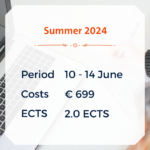
Python is currently the most popular programming language in the world, according to the TIOBE Index. During this course, you will be introduced to Python, a pythonic way of working and thinking, and to web scraping—a powerful method to collect born-digital data for your (scientific) research projects. This course is offered in tandem with “Python from Zero to Hero Part 2,” which builds further on the skills and knowledge built in this course.
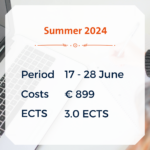
This course is designed around the data science lifecycle to show the techniques for handling a data science project. You will be exposed to basic programming skills in Python and learn how to select, clean, analyse, visualise and interpret data.
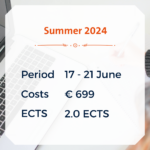
Participants will look at human trafficking and sexual violence in conflict, both in their own right and together. This will contribute to a better understanding of the opportunities and challenges involved and to finding ways forward in addressing these timely crimes.
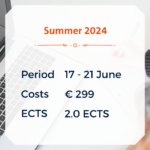
This course was designed for students who are interested in the aid/development sector as well as students who are interested in logical models that can be applied to project design. During the course, you will develop your project design, monitoring and evaluation skills as well as your analytical and presentation skills.
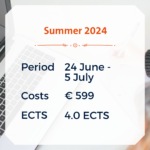
This course introduces you to the approach, concepts, and methodology of game theory using simple puzzles compiled over nearly two decades of teaching game theory, along with articles from reputable newspapers addressing contemporary societal problems. Through working on such puzzles, you will gain practice with examples, enabling you to analyse real-world problems described in articles with game-theoretic tools.
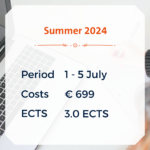
Are you passionate about the intersection of technology and public health? This exciting one-week course dives deep into the digital transformations reshaping public health in the 21st century. It offers a blend of theory, practical knowledge and critical analysis, and is aimed at students interested in public health, public policy, and the implementation and governance of digital technologies.
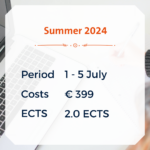
This course is designed for marketing enthusiasts, business professionals, and aspiring luxury brand managers who seek to master the intricacies of the elite market segment. Through a blend of theoretical insights and practical case studies, you will gain a deep understanding of the unique challenges and opportunities within the luxury sector.
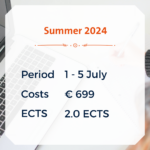
This course will expose you to a variety of tools and methods that will allow you to speed up your writing without compromising the quality of your work. During the course, you will write an article about the drivers of energy consumption in the world. You will start from scratch and, by the end of the week, will have your first draft. The objective is to cover all the steps involved in writing a scientific paper.
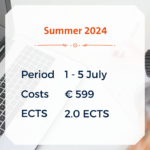
This course offers a comprehensive introduction into the governmental practices that are often called welfare in the US, while in Europe they are referred to as social policy or the welfare state. During the course, you will explore the key components of the welfare state, major challenges that have been tackled in Europe and classical social policy tools used to address these challenges.
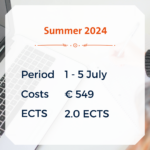
This course will teach you how to record business transactions following a double-entry system, and how to prepare financial statements—income statements and Balance Sheets similar to the ones reported by famous corporations such as Apple, Google and Microsoft.

This course will focus on worldwide macro-trends in Water Resource Management and Policy. It will provide you with a basic understanding of water management policy, law and regulation. You will also explore the impact of climate change on water cycle patterns worldwide.
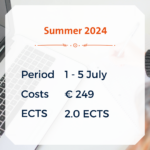
In today’s data-driven world, interpreting labour market statistics is a crucial skill. This one-week intensive course delves into the multifaceted role of statistics in labour market analysis: the potential for misuse, the influence of politics, the role of statistics in social policies, and the importance of statistics to understand social and technological transitions.

Once only a feat of governments, today, SpaceX and Virgin Galactic, among others, systematically conduct space-related activities. The discussion continues with companies establishing themselves on craters and lunar real estate being in dispute. After completion of this course, you will be able to respond to questions such as: “What are the ethical dimensions of space settlement?” and “What are the economic elements of going to space, and who might benefit from them?”
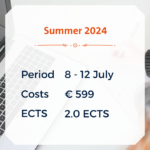
The ability to effectively harness data and communicate its insights is a game-changing skill every professional and student must have. This course provides the theoretical background as well as a deep dive into the fusion of data visualisation and storytelling, two competencies that not only facilitate information dissemination but also set you on the path to becoming a clearer communicator and an invaluable asset to any organisation.
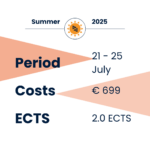
Economics is a dynamic and multifaceted field that provides valuable insights into how societies allocate resources, make decisions, and shape their financial systems. This course is designed to give you a foundational understanding of key economic theories, both at macroeconomic and microeconomic levels.
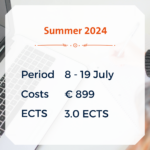
This course aims to provide a thorough analysis of the important issues and processes related to China’s politics and international relations. It focuses on developments that have taken place since the end of the Cold War, with a particular emphasis on China’s economic, political, military, and cultural growth and their implications for international politics up to the present day.
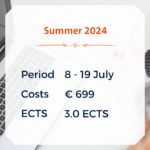
This course provides an introduction and philosophical investigation of the question if, when and how ethical considerations can or must play a role in the practice of medical professions. It aims to make you aware of the fact that the health sciences are not operating in a moral or philosophical vacuum and that a good knowledge of both the older and recent ethical and philosophical debate in this particular field is of the greatest significance.
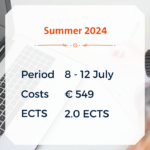
This course aims to make you a financial analyst. During the course, you will learn how to analyse financial statements of two or more corporations (such as Microsoft and Apple) to compare and contrast the performance, liquidity, and solvency from the points of view of a manager, banker or shareholder.
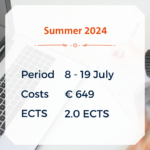
During this course, you will master derivatives and hedging, and learn how to work with and read financial statements properly. By combining your knowledge of derivatives, hedging and financial statements, you will be able to recommend appropriate actions for problems that companies face on a daily basis.
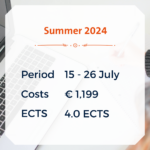
This course aims to, among others, identify new developments in the field of HRM, provide conceptual and practical frameworks for successfully managing people and teams in a global, cross-cultural context, and to develop the necessary insights and skills for international managers and professionals to operate successfully in a highly competitive, international context.
